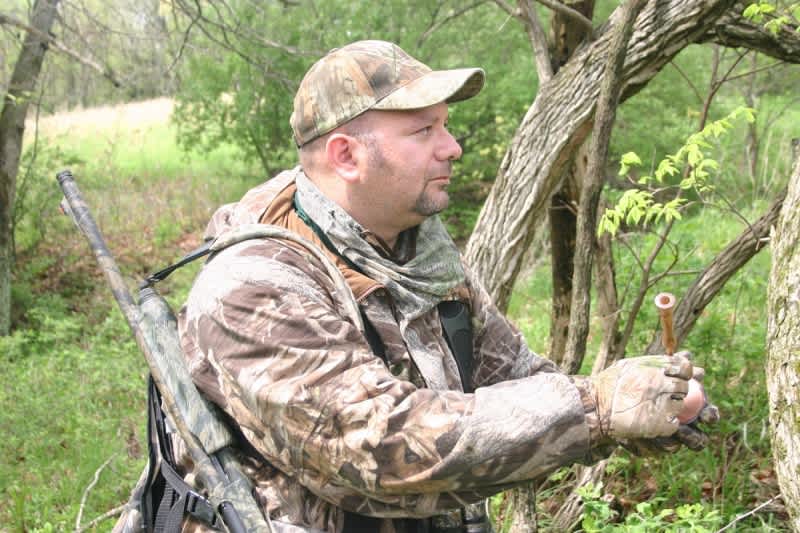Offbeat Calling Can Help Fill Your Turkey Tag
Joe Martino 04.16.14

The turkeys around here seem like they’re getting tougher to kill each year. No, they’re not starting to wear Kevlar—they’re becoming more resistant to my calling efforts, and it’s getting frustrating, to say the least. That’s okay, though, for I still have a few tricks up my camouflaged sleeve for these persnickety old gobblers.
With turkey hunting gaining popularity each year, more turkeys are being subjected to a barrage of hunters’ best calling efforts. One way to combat this and tip the odds a little in your favor is to keep them guessing and get out of your comfort zone a bit by trying some calls that the birds are not likely to have heard before. There’s typically a pretty good reason that they probably have not heard certain types of calls—they can be quite difficult to master! But with persistence and practice, you will soon find yourself able to use an array of calls, making you more versatile in the turkey woods this spring.
I always start out with my favorite mouth calls and pot calls regardless of where I am hunting. If my best efforts with conventional calls falls short or the birds aren’t responding to them, then I break out something a little different. When hunting in heavily-trafficked areas like public land where the birds have likely already heard it all the conventional calls out there, having the tools and the know-how to use calls that others do not can make the difference between eating fresh wild turkey breast for dinner instead of bologna.
My favorite type of call to go to when I feel that I need to go off-the-grid is the snuff can tube type of call. With a little practice you can easily make yelps and clucks with it, and even a gobble with a little more practice. The yelps with this call sound very much like those made with more popular styles of calls, but with just enough differences to seal the deal on a gobbler that has heard it all.
Another call to learn how to use is the wingbone yelper. This one is harder to learn than the snuff can tube is, but is sure to be one that I would bet many gobblers in your hunting area have yet to hear.
Offbeat calls are not restricted to just those that aim to replicate the sounds of other turkeys, either. I have also learned to use this same mindset when considering locator calls. I have noticed that in many of the areas I hunt, a crow call does not work all the time, and at times very rarely does. I could not figure out why for several years until I learned why—from flocks of geese! That’s right, geese.
One particular farm I hunted bordered a creek, and I noticed that the gobblers on this farm did not usually gobble at the honking that took place on the creek. They would gobble at the geese first thing in the morning as they woke up on the roost, but wouldn’t after that. I was able to figure out that as they grew accustomed to the geese and their honking, they quit gobbling at them. Remember, locator calls work by “shocking” a tom into gobbling—they are calls that simply pierce the air in otherwise-quieter surroundings. The sound surprises or shocks the gobbler, thus making him gobble. Most of the areas I hunt have an abundance of crows, so the gobblers have gotten used to them.
The next time your standard crow call or owl hooter isn’t cutting the mustard, be sure to have a coyote call, pileated woodpecker, peacock, or heck, even an air horn handy.
Get some new calls and start practicing with them, but when hunting always be sure to start out with your more typical mouth and box calls as you normally would. Only save the offbeat ones for when things get tough and the common calls aren’t getting it done for you. Remember, these calls work because they are different. If you make them your go-to ones, then, well, they’re not different anymore.

